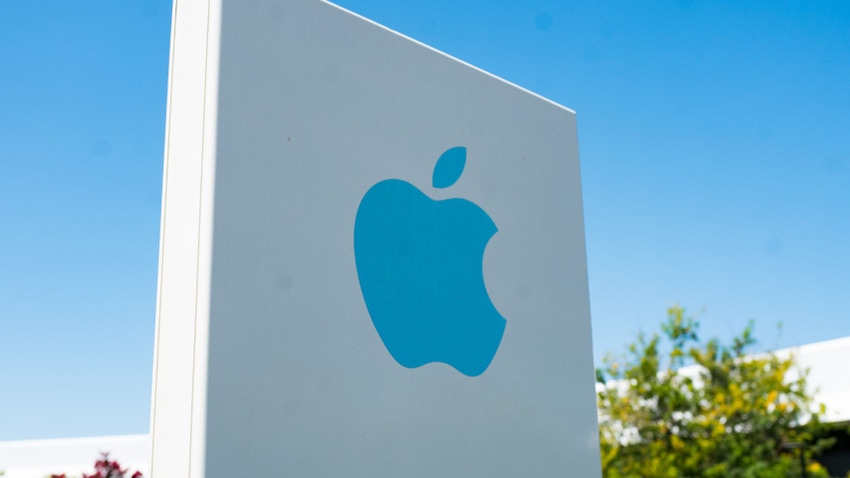
Here are this week's most-read stories on AI Business:
Apple Launches First Multimodal AI Model
Apple has unveiled MM1, a family of multimodal models capable of handling images and text.
The models range up to 30 billion parameters and are competitive with the initial versions of Google Gemini.
MM1 can follow instructions and reason across images among the model's multimodal abilities. The example below shows it can deduce how much two beers cost based on the price on the menu.
MM1 boasts in-context learning, meaning the model can understand and respond to queries based on the context provided within the current conversation without needing explicit retraining or fine-tuning for each new type of query or task.
In-context learning could allow the model to generate descriptions of images or answer questions about the content of photo-based prompts based on content it has not seen before.
With its multimodal understanding capabilities, Apple could use MM1 to improve its voice assistant, Siri, by enabling it to answer questions based on images, for instance. MM1 could also help understand the context of shared images and texts within iMessage, offering users more relevant suggestions for responses.
Read more about Apple's launch
AI Startup Roundup: Nvidia In Talks to Acquire Run:AI
This week’s AI startup roundup covered Nvidia’s talks to purchase AI infrastructure firm Run:ai.
Founded in 2018, Run:ai optimizes GPU compute resources for AI and deep learning workloads. Based in Tel Aviv, Israel, the company’s software solutions help researchers view and allocate compute resources across multiple sites on-premises or in the cloud.
The reported deal could be worth up to $1 billion.
Also featured was the news that Apple has acquired DarwinAI, a Canadian company creating AI technology for monitoring manufacturing processes.
Darwin staff have since become part of Apple’s AI team, with co-founder Alexander Wong taking up a director role.
AI in Cybersecurity: Understanding the Digital Security Landscape
Today’s cybersecurity risks are much broader than they have been historically. Our current era is dominated by digital transactions and communications, and more sophisticated cybersecurity challenges have emerged. Threats today include ransomware attacks, phishing scams, supply chain attacks, AI-powered attacks, IoT device vulnerabilities, cloud security threats, and state-sponsored cyber warfare.
In this increasingly complex landscape, AI can enhance cybersecurity by automating complex processes for detecting and responding to threats. Machine learning can also be leveraged to learn from historical incidents and improve responses over time.
In this detailed guide, learn about how AI has become a game-changer in the cybersecurity space, enabling enhanced threat detection and proactive security.
Learn more about AI in cybersecurity
Biden Awards Intel $20B to Advance U.S. Chip Manufacturing
President Biden announced Wednesday that Intel reached a preliminary agreement with the Department of Commerce to provide up to $8.5 billion in direct funding and $11 billion in loans to fund commercial semiconductor manufacturing projects.
Intel will use the funds to build and expand its facilities in Arizona, Ohio, New Mexico and Oregon.
The company will also use the funding to support its previously announced plans to invest more than $100 billion over the next five years to expand chipmaking capacity and capabilities. Intel will also benefit from an Investment Tax Credit of up to 25% of its investments exceeding $100 billion over five years.
Developer of AI Tech for Self-Driving Vehicles Valued at $6B
Applied Intuition, an autonomous vehicle software developer, has closed its latest funding round with $250 million to bring its AI-enabled tech to vehicles across the automotive, construction, defense and agricultural sectors.
The series E round was led by Lux Capital’s Bilal Zuberi, Porsche Investments Management, and independent investor Elad Gil. Additional funds came from several independent investors including DeepMind’s founder Mustafa Suleyman and Formula 1 world champion Nico Rosberg.
The funding brings Applied Intuition’s value to $6 billion.
The company’s software leverages AI and large language models to “transform” vehicles’ performance and operation, mining vehicle data to inform product developments and operational improvements.
For the full roster of AI news, go to AI Business or sign up for our email newsletter.
About the Author(s)
You May Also Like


.jpg?width=700&auto=webp&quality=80&disable=upscale)
.jpg?width=700&auto=webp&quality=80&disable=upscale)
.jpg?width=700&auto=webp&quality=80&disable=upscale)
.jpg?width=300&auto=webp&quality=80&disable=upscale)
.jpg?width=300&auto=webp&quality=80&disable=upscale)
.jpg?width=300&auto=webp&quality=80&disable=upscale)
.jpg?width=300&auto=webp&quality=80&disable=upscale)
.jpg?width=300&auto=webp&quality=80&disable=upscale)